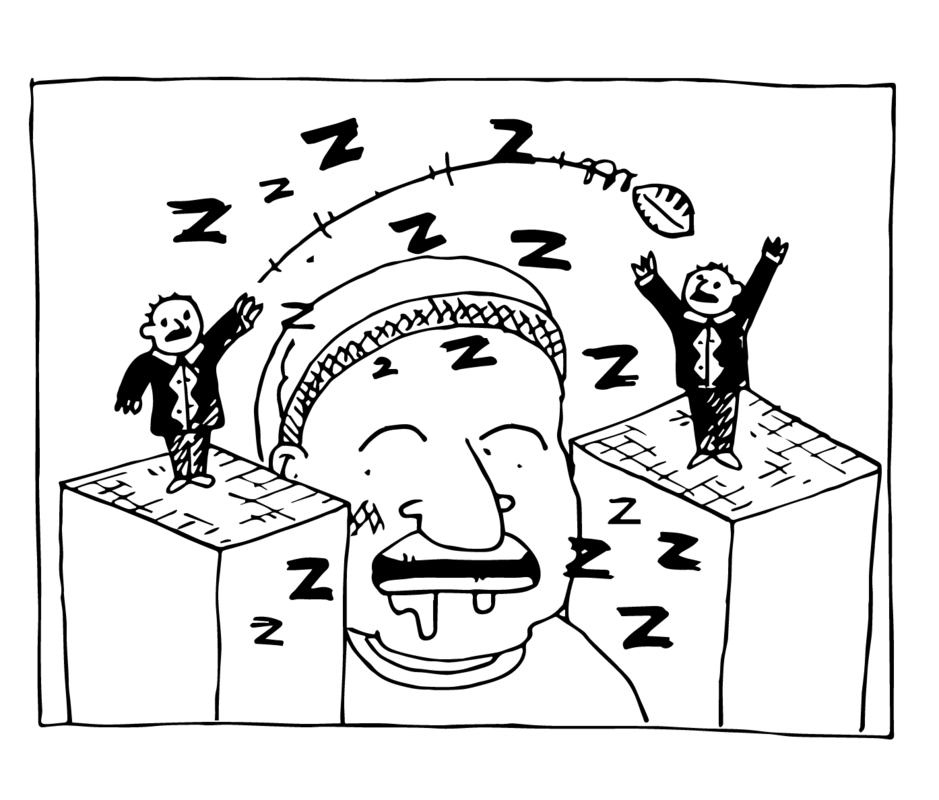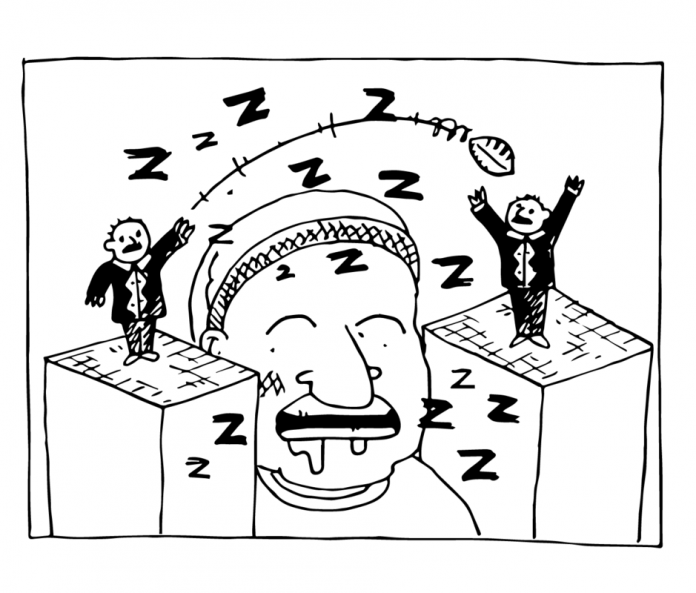This is my working logic: when cats make laws, they make laws that benefit cats. The average age of House of Commons members is 51.74. When 51.74-year-olds make laws, they tend to make laws that benefit soon-to-be retirees. And when they do, issues like university tuition costs and respecting the environment don’t pull the same kind of weight that Canadian Pension Plan rates and medication coverage does.
But I think, if you’re under 35, you should know more about Canada’s political climate than anyone over it.
And so, the proposed tax changes: Tax laws may not interest you today, but considering there’s a good chance you’ll be self-employed, they should.
According to Intuit Canada, freelancers, independent contractors, and on-demand workers will make up 45 per cent of the Canadian workforce by 2020. Currently about nine per cent of the workforce is self-employed. Maybe this is because millennials tend to prefer flexibility, collaboration, and the independence to choose projects, opposing the previous workforces’ proclivity towards corporate ladders and climbing them, according to Forbes. In a study by oDesk, 92 per cent of millennials said they want to work remote and 87 per cent want to work on their own clock, instead of the conventional 9-to-5 workday. Now, global giants like Microsoft and Uber employ comparatively few compared to their contracted workers; a shift from years past. Whether the trend is accurate or not, it looks like there’s a good chance many of us will be freelancers or contractors.
The proposed tax changes that were first announced last July spurred conversation on three central points: income splitting, capital gains, and passive income. The tone of the conversation tends to lean towards negativity; the theme is more or less that small businesses are going to get shafted.
Maybe no one reading a student newspaper wants to talk about tax law, but it will shape the future regardless. Are you comfortable with the proposal? Do you know what was proposed?
‘Income splitting’
Income splitting is a technique where income from an individual is attributed to a family member in a lower tax bracket to reduce overall tax payable. Business owners and entrepreneurs can do this by making their spouse or adult children shareholders and paying them dividends, regardless of whether they work for the company or not. Tax is still paid on the dividends, but at a lower rate than the business owner would pay.
A study from the Canadian Centre for Policy Alternatives found that one in eight small business owners would be affected by the proposed changes to income splitting.
‘Capital gains’
How would taxing something that’s good yield good results? Writing for the Financial Post, Mathieu Bédard said, “Just as taxes on tobacco and alcohol reduce their consumption, the capital gains tax hinders capital formation, which is one of the basic foundations of all economic growth.”
In Canada, half of any capital gain is taxed as income when an investment is sold, with a few exceptions like selling a home. Capital gain is when something bought (capital asset) increases in value past the purchasing price (e.g. house/property, stocks, artwork).
The idea is to crack down on people fudging their tax returns to convert income from private corporations into capital gains to get a lower tax rate. This might be done by selling shares in a business to a holding company and declaring the income made on the sale as capital gain.
The government says this provides “an unfair opportunity to reduce income taxes […] by taking advantage of the lower tax rates on capital gains.” Does it? Under the proposed changes, accessing “invested” assets would result in taxation. Some business owners say this will make growing a company and planning for retirement difficult.
‘Passive investment income’
Income earned by a corporation is taxed at a lower corporate tax rate, which gives the owner an advantage in earnings when compared with a salaried employee getting a paycheck every two weeks, taxed at the personal rate.
This is a problem, the government says, when someone holds money inside a corporation, not to invest it in growing the business, but to shield it from the higher personal tax rate.
But many business owners keep money in their business because it’s worth saving for a rainy day. A passive investment income tax would discourage businesses owners from keeping money in the company.
They save their money (within the corporation), and use it to curb economic downturns, purchase equipment, or invest in the business in any way. It could make it more difficult for small businesses in Canada to invest in themselves.
Still don’t care about tax law? Fine. It’s more than financial issues that we need to worry about. But it seems like there’s just too much to stay on top of. Republicans in the United States want to allow oil drilling in the Alaskan wildlife refuge, reigniting a [previously thought to be extinguished] discussion on drilling for oil in the refuge with the largest variety of plant and animal life of any protected area north of the Arctic Circle.
For decades, Alaskan politicians had pushed to have the refuge opened for drilling. Oil currently makes up about 85 per cent of Alaska’s revenue, and dropping oil prices means Alaska needs to sell more to maintain their income tax-free standard of living.
Natural Resources Committee Chair and Alaska Republican Lisa Murkowski argues for the drilling saying, “We also know that it’s something we have to do today, because the benefits of development will take time to fully realize.”
Murkowski doesn’t get it. Like so many others, she believes drilling oil will be harmless for another few decades. She’s been a senator since 2002, meaning she’s likely had her head in the sand for a decade and a half.
Last week, the Supreme Court of Canada ruled against both the Ktunaxa Nation and protecting land considered integral to the survival of the grizzly bear.
The Ktunaxa believe the proposed Jumbo Glacier resort project will drive the Grizzly Bear Spirit from Qat’muk, the traditional name for the territory, which will permanently tarnish their religious and spiritual practices.
It’s interesting that even in the wake of a mass shift in perspective of Indigenous issues, when it really comes down to what matters, the Supreme Court doesn’t care about spiritual practices older than its rule.
It’s no surprise. Ottawa continues to fund terrorism in the Middle East, ignores human rights violations practically everywhere there aren’t corporate interests, and promotes the ongoing use of oil as a primary source of energy within Canada. And while these problems are about as insurmountable as problems come, in the Fraser Valley, the only Aids Service Organization in the Fraser Health region faces closure at the hand of the feds. Kinder Morgan wants to pump 890,000 barrels of oil per day along the Fraser River, increasing Vancouver’s inner harbour traffic from 60 to 400 tankers, putting all coastal life at risk.
We say things like, young people are too apathetic, but that’s mostly wrong. For the most part, we’re just disillusioned. It seems that every small political win is accompanied by a barrage of negativity. It doesn’t have to be that way.
In October, Finance Minister Bill Morneau announced that the Liberal government would drop the capital gains tax. Business owners, especially farmers and fishers, made a big fuss about the proposed tax. One of the main issues comes from the potential difficulty in passing down a family farm intergenerationally if taxes had to be paid on capital gains. What this shows is that the government’s mind can be changed — if there’s real opposition.
All this is to say you should probably give a darn about what today’s politicians do, because tomorrow, civil war might break out in Spain or the United States; Justin Trudeau’s chief fundraiser and senior adviser, Stephen Bronfman, might get away with tax evasion; and the southern resident orcas could get wiped out by a single oil spill. Good luck and Godspeed, future us.



